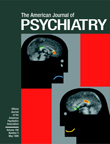Tardive Dyskinesia With Quetiapine
Ms. A, a 44-year-old woman with schizophrenia and chronic active psychosis, was resistant to conventional antipsychotic therapy. She was treated for many years with clotiapine, haloperidol, perphenazine, thioridazine, and penfluridol. Most of these treatments were associated with severe akathisia and parkinsonism. Ms. A requested hospitalization to protect herself from imperative, frightening voices. She reacted in a bizarre manner to these voices and had paranoid delusions. During the years of her illness, she ceased working and extremely neglected her family and herself. On a regimen of quetiapine for 6 months, Ms. A completely recovered from her psychotic features and negative signs. Ms. A was first treated with a dose of 300 mg/day, but because of a strong sedative effect, the dose of quetiapine was reduced to 150 mg/day. Ms. A returned to her role as homemaker and renewed the social connections that she had ceased many years ago. Six months after beginning the treatment with quetiapine, involuntary choreiform movements of the tongue and jaw appeared, and a few weeks later, involuntary movements of the fingers appeared. Tardive dyskinesia was diagnosed. The involuntary movements persisted after the cessation of quetiapine. Unfortunately, after treatment with quetiapine was stopped, Ms. A relapsed into a severe psychotic episode. Treatment with clozapine then brought about an improvement in both her mental status and tardive dyskinesia.
References
Information & Authors
Information
Published In
History
Authors
Metrics & Citations
Metrics
Citations
Export Citations
If you have the appropriate software installed, you can download article citation data to the citation manager of your choice. Simply select your manager software from the list below and click Download.
For more information or tips please see 'Downloading to a citation manager' in the Help menu.
View Options
View options
PDF/EPUB
View PDF/EPUBGet Access
Login options
Already a subscriber? Access your subscription through your login credentials or your institution for full access to this article.
Personal login Institutional Login Open Athens loginNot a subscriber?
PsychiatryOnline subscription options offer access to the DSM-5-TR® library, books, journals, CME, and patient resources. This all-in-one virtual library provides psychiatrists and mental health professionals with key resources for diagnosis, treatment, research, and professional development.
Need more help? PsychiatryOnline Customer Service may be reached by emailing [email protected] or by calling 800-368-5777 (in the U.S.) or 703-907-7322 (outside the U.S.).

